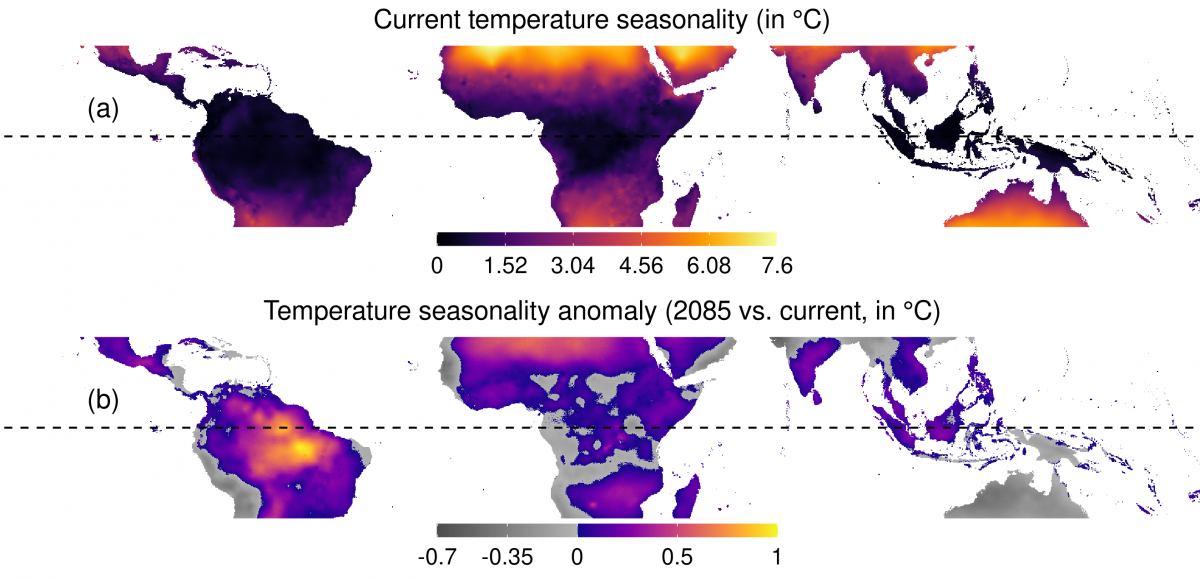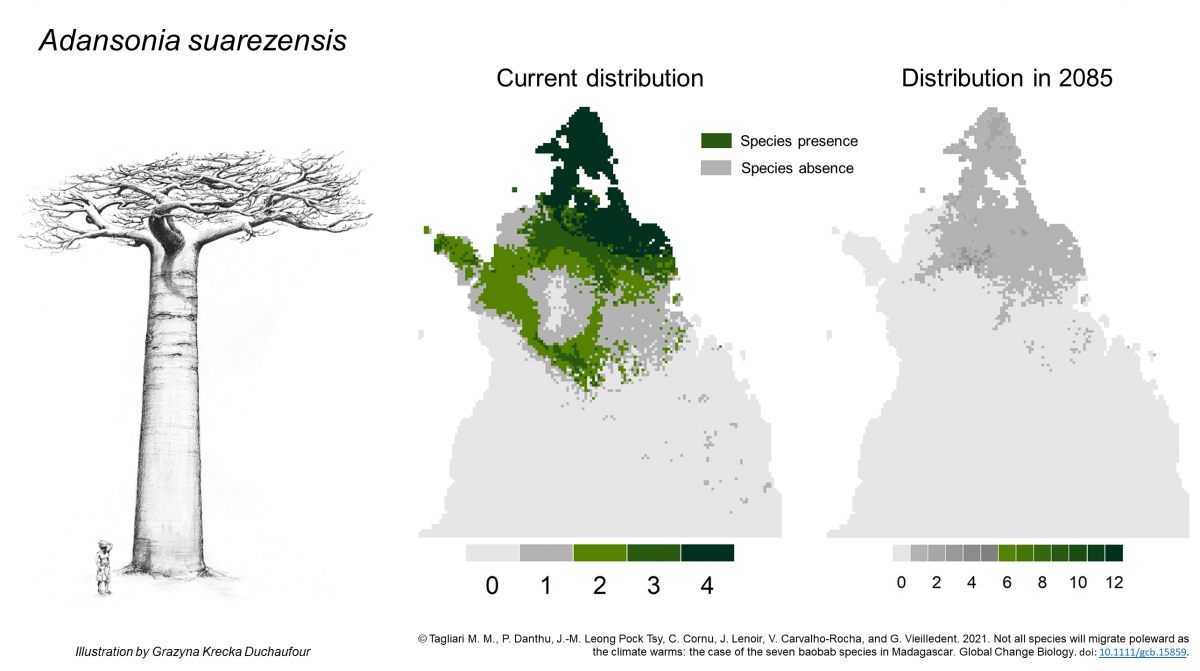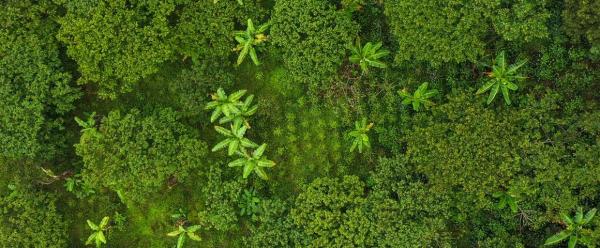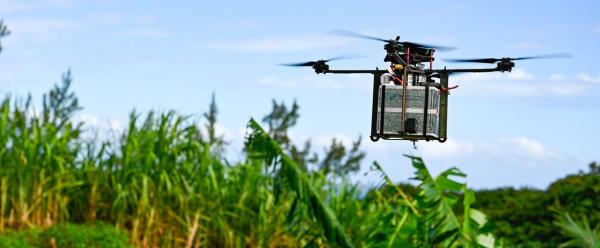Results & impact 10 October 2025
- Home
- Press area
- Press releases
- Baobabs threatened by the increased in seasonality
Climate change is threatening biodiversity in the tropics: the case of the baobabs in Madagascar
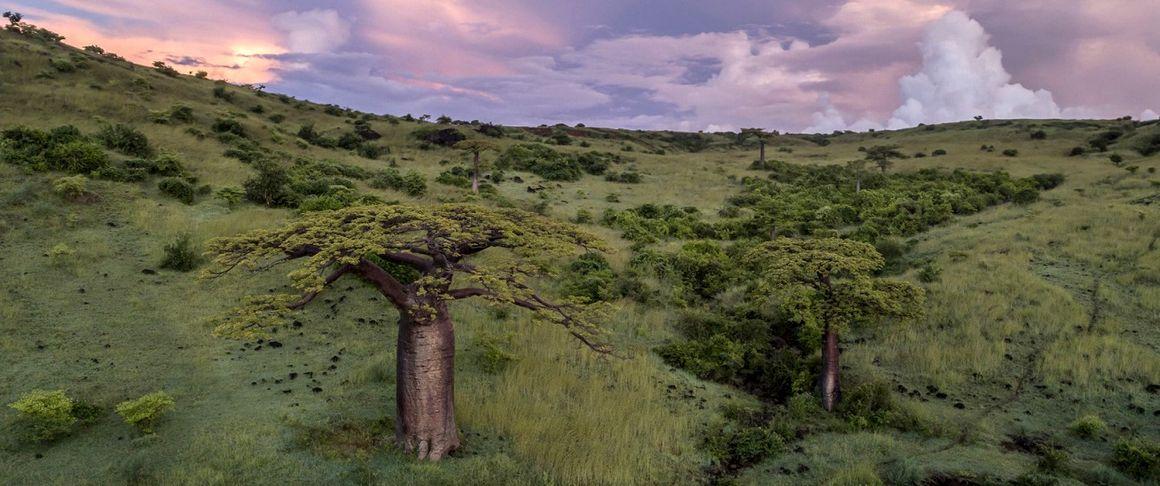
Adansonia suarezensis baobab population in northern Madagascar. Due to the increase in seasonality in the tropics, the species could disappear from the island by 2100 © C. Cornu, Cirad
Across the tropics, the average temperature differences from one month to another are currently less than 3°C. The IPCC projections anticipate that this difference will increase by as much as +1°C in the tropics by 2100. In order to resist, many tropical species will need to migrate towards the equator, where the temperature differences are the lowest.
Source : IPCC, AR5. © Tagliari M. M., P. Danthu, J.-M. Leong Pock Tsy, C. Cornu, J. Lenoir, V. Carvalho-Rocha, and G. Vieilledent. 2021. Not all species will migrate poleward as the climate warms: the case of the seven baobab species in Madagascar. Global Change Biology
Of the eight baobab species known in the world, seven are found in Madagascar and six are endemic to the island, in other words they are not naturally found anywhere else on Earth. Three of them are particularly sensitive to temperature variations over the year and are distributed throughout the northern part of the island, close to the equator: Adansonia suarezensis, Adansonia perrieri and Adansonia madagascariensis. In order to adapt to the increase in temperature seasonality, these species should in theory migrate further north, towards the equator. However, the terrestrial limits of the island of Madagascar would prevent the dispersal of these species in this direction, and would lead to their probable extinction.
The findings presented in the article thus show that not all species will migrate poleward or to higher altitudes under the effect of temperature rise associated with climate change. According to Ghislain Vieilledent, an ecologist at CIRAD specialising in tropical forests, and coordinator of the study: “Depending on the importance of the climate variables that determine species distribution, climate change can lead to species migrating in opposite directions. If it is the mean annual temperature that primarily explains the distribution of a species, then that species will tend to migrate poleward or to higher altitudes, where the temperature is lower. On the other hand, if temperature seasonality is what matters, as is the case for the three baobab species mentioned above, then the species will instead tend to migrate towards the equator, where seasonality is lower”.
Anticipating the consequences of climate change on living organisms is complex. Although anticipation and adaptation to climate change are necessary, these new findings show that the most important thing is to minimise this change by limiting greenhouse gas emissions in the atmosphere.
The article builds on a large database of several thousand points of occurrence throughout Madagascar, for the seven baobab species. This data is derived from surveys conducted in the field by teams from CIRAD and FOFIFA since the early 2000s, as well as complementary photo-interpretation of satellite imagery to identify individuals from certain species. This occurrence data has been collated, checked and archived, and is freely available on CIRAD’s Dataverse data repository.
Associated with the climate data available for Madagascar, which has been compiled and published as part of the BioSceneMada project on biodiversity scenarios for Madagascar, this occurrence data is used to adjust climate niche models for each species. It helps to specify the climate (temperature range, rainfall, water stress level, seasonal variation in temperature) to which each species is adapted and to thereby determine their current range. The IPCC climate projections are then used to predict the contraction or expansion of the species range by 2100 under the effects of climate change, and to subsequently estimate the extinction risk for each species.
Reference
Tagliari M. M., P. Danthu, J.-M. Leong Pock Tsy, C. Cornu, J. Lenoir, V. Carvalho-Rocha, and G. Vieilledent. 2021. Not all species will migrate poleward as the climate warms: the case of the seven baobab species in Madagascar. Global Change Biology

























